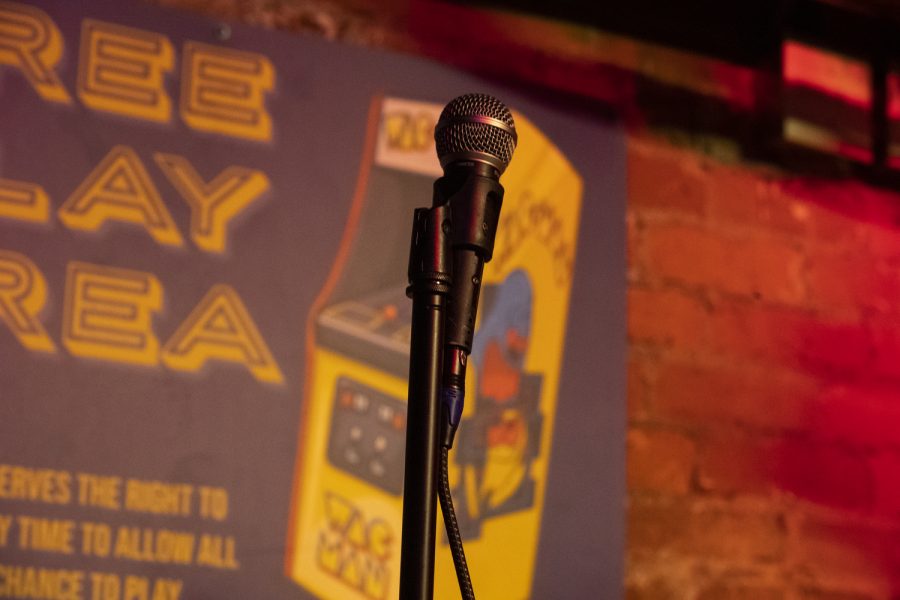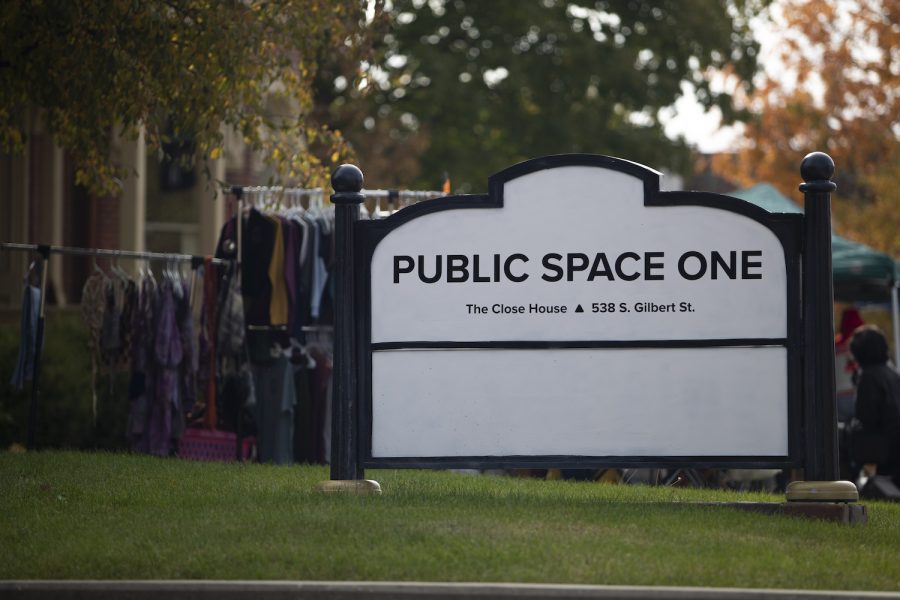When the University of Iowa Power Plant whistle sounds at 8 a.m., Ted John still reaches for his gas mask.
The sound reminds him of the warning signal that told troops a missile was coming in when he served as part of Operation Desert Storm/Desert Shield.
Dealing with post-traumatic stress disorder is something John had to face in order to move on with his life once he was sent back to the United States.
"It’s manageable," John said. "I wouldn’t say I’m better, but I’m able to function now."
Writing is one of the outlets that helps him reflect on his difficult experiences during the war.
He said it’s been a therapeutic process because some of the memories in his head are still kind of fuzzy and writing helps him flush out the details.
"What’s in my head used to be really scary and when I write on paper, it takes out the mystery," he said.
John, along with six other veterans, will share his stories at the Veteran Voices Reading at 6 p.m. on Friday at the Mill, 120 E. Burlington St. Admission is free.
The event is the first time for John to give a reading about his experiences. The 43-year-old is back in school at the University of Iowa, studying creative writing and theater.
He said that his experiences in the war are a part of who he is and shape what he writes, but he doesn’t think he will write about war for the rest of his life.
"It’s allowing myself to become vulnerable," he said. "I was in the Marine Corps, and the training I received made me bulletproof, but [with writing] I’m channeling the dark side of who I am and then embracing it and not being afraid of what’s there.
The veteran compares his experiences with the war and how civilians view it to a package of beef.
"In some ways, we hear about the war, but we don’t know all the details," John said. "It’s like knowing where our meat comes from. When you see a package of beef at Hy-Vee, you don’t realize the story behind it."
John said once people know the whole story, it makes them appreciate what they are getting, or in the case of war, what has been done on their behalf.
"I would hope that no one would have to go through the horrors that I’ve faced," he said. "But I have a desire to share them."
Luke Shepherd served in the U.S. Air Force at Cannon Air Force Base in New Mexico from 2006-2010. During that time, he was a mechanic who worked on ground equipment, but he was never sent over seas.
The 28-year-old will read three essays about various experiences during the war.
One essay, "Summer Camp," retells the first time he was introduced to a glimpse of the military world when his camp director that summer had been in the Special Forces.
The more humorous tone of that essay takes a sentimental turn in the second piece, as he talks about his time in the Air Force and why he decided to join.
Shepherd remembers the moment when he returned home, and people didn’t understand that he was a veteran because never went over seas. So, with his three essays, it was important to Shepherd that he show the different sides of his experience.
"What I really think is important is people in my generation have had their entire adult life affected by the wars, but I don’t think they really comprehend that," he said. "I want to present a broader definition of the war to them."
The Kirkwood student’s third essay will juxtapose the military with Star Wars in an effort to blend the sentimental and humorous parts of his first two pieces.
"My military experience is something I think I’ll never leave behind," Shepherd said. "But I want to explore other topics of writing. I’m really interested in children’s books."
Ted Kehoe has not experienced war firsthand, but he has been surrounded by those who have, which led him to write literature dealing with war.
Whether it was living in San Diego, where the Navy was constantly in uniform, or living next door to a veteran in Iowa City, Kehoe has been able to explore their experiences from an outsider’s point of view.
The 35-year-old is most interested in veterans returning home from the present conflicts in Iraq and Afghanistan and how they integrate back into American life. Kehoe’s poem is about a veteran returning from Iraq who becomes a police officer in a small town.
The poem is told from the point of view of his sister-in-law. She talks about her experiences growing up with the veteran and his brother (her husband) and how now that the soldier has returned home, he is quieter.
"In my mind, he isn’t disturbed," Kehoe said. "But he is strangely at peace, so the sister-in-law wonders what is going on inside of him."
The graduate of the Iowa Writers’ Workshop has the viewpoint of someone who has not served, so he wanted to bring that out in his narrator.
"I wanted someone who was very sympathetic and was outside of the experience," Kehoe said. "Not being a veteran and being sympathetic is something that I’m always reminding myself to do — to be open to different reactions."
Scott Smith, a student in the Writers’ Workshop, organized the reading because he thinks it’s a way for veterans to express themselves to the community.
He served in the Marine Corps in Iraq from 2000-2004, and he will read from his memoir, which is about 9/11 and returning home from combat.
"I think the most important thing in writing is to tell the truth, which means that it’s going to be nasty and not pretty," he said. "But if you can describe what happened there on the ugly side and the beautiful side, then that is a shared experience and a missed nostalgia."






